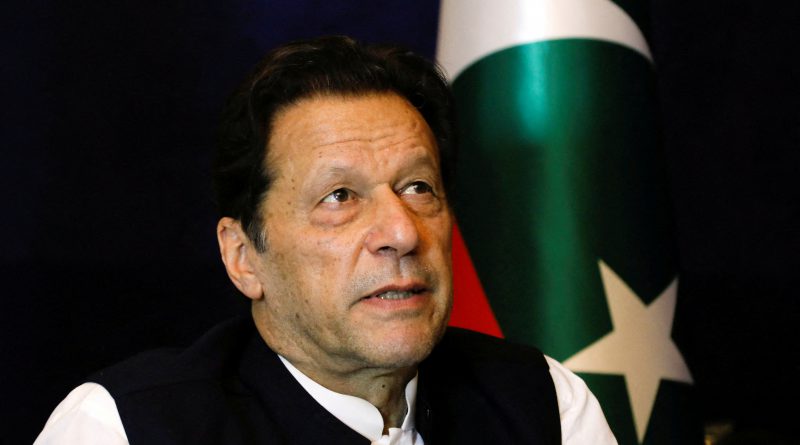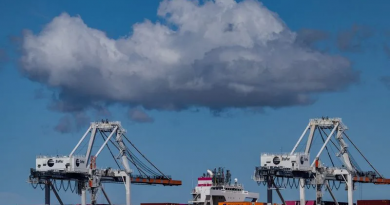Pakistan court declines bail to Imran Khan in state secret case
Islamabad (Reuters) – A Pakistani court declined bail on Friday to detained former Prime Minister Imran Khan in a case in which he has been indicted on charges of leaking state secrets, his lawyer said.
The charge is related to a classified cable sent to Islamabad by Pakistan’s ambassador in the United States last year, which Khan is accused of making public.
Former cricket star Khan denies that and said the contents of the cable appeared in the media from other sources.
Lawyer Naeem Panjutha said the Islamabad High Court declined Khan’s application for bail and for the case to be dismissed.
“We will challenge it,” he said in a post on the social media platform X, formerly known as Twitter.
Khan has been at the centre of months of political turmoil in nuclear-armed Pakistan that has shone a spotlight on the powerful military’s influence over civilian politics.
Khan was forced from office in 2022 after losing a no-confidence vote in parliament. He said at the time the military was trying to sideline him after he fell out with the generals over disagreements about top security appointments.
The military, which has ruled Pakistan directly for significant periods since independence in 1947, and wielded influence over civilian governments at other times, denied engineering Khan’s ouster.
Khan has said the cable he has been accused of leaking was proof of a U.S. conspiracy to push the military to oust him in the 2022 parliamentary vote because he had visited Moscow just before Russia’s invasion of Ukraine.
Both the United States and the Pakistani military denied that.
Khan has had dozens of legal cases filed against him, which he has denounced as an effort to keep him out of politics.
He has been convicted in one graft case and sentenced to three years in jail. The sentence was suspended but he remains in prison in connection with other cases.
Given his conviction, Khan, whose conservative, nationalistic agenda won him considerable public support, can not take part in a general election expected early next year.



